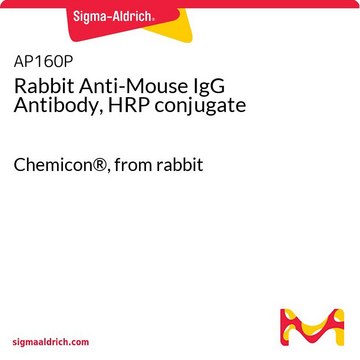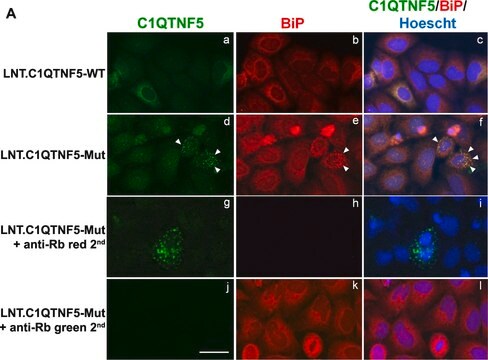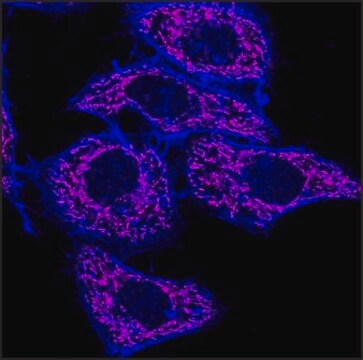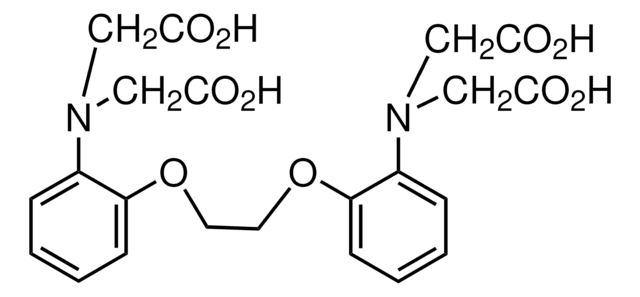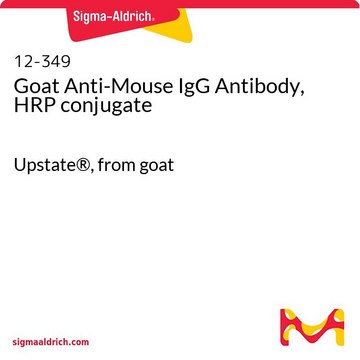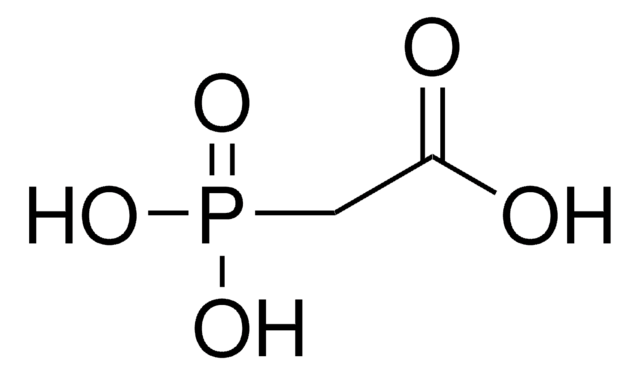G4045
Anti-GRP75 (SQ-15) antibody produced in rabbit
~1 mg/mL, affinity isolated antibody, buffered aqueous solution
Sinônimo(s):
Anti-Glucose Regulated Protein 75, Anti-Mitochondrial Hsp70, Anti-Mortalin, Anti-Peptide Binding Protein 74
About This Item
Produtos recomendados
fonte biológica
rabbit
Nível de qualidade
conjugado
unconjugated
forma do anticorpo
affinity isolated antibody
tipo de produto de anticorpo
primary antibodies
clone
polyclonal
Formulário
buffered aqueous solution
peso molecular
antigen 75 kDa
reatividade de espécies
mouse, human, canine
concentração
~1 mg/mL
técnica(s)
indirect immunofluorescence: 1-2 μg/mL using HeLa cells
western blot: 0.2-0.4 μg/mL using whole cell extracts of HeLa, MDCK, and NIH3T3 cells
nº de adesão UniProt
Condições de expedição
dry ice
temperatura de armazenamento
−20°C
modificação pós-traducional do alvo
unmodified
Informações sobre genes
mouse ... Hspa9(15526)
rat ... Hspa9(291671)
Descrição geral
Imunogênio
Aplicação
- immunofluorescence
- immunoblotting
- immunocytochemistry
Ações bioquímicas/fisiológicas
Descrição-alvo
forma física
Exoneração de responsabilidade
Não está encontrando o produto certo?
Experimente o nosso Ferramenta de seleção de produtos.
Código de classe de armazenamento
10 - Combustible liquids
Classe de risco de água (WGK)
WGK 3
Ponto de fulgor (°F)
Not applicable
Ponto de fulgor (°C)
Not applicable
Equipamento de proteção individual
Eyeshields, Gloves, multi-purpose combination respirator cartridge (US)
Escolha uma das versões mais recentes:
Certificados de análise (COA)
Não está vendo a versão correta?
Se precisar de uma versão específica, você pode procurar um certificado específico pelo número do lote ou da remessa.
Já possui este produto?
Encontre a documentação dos produtos que você adquiriu recentemente na biblioteca de documentos.
Nossa equipe de cientistas tem experiência em todas as áreas de pesquisa, incluindo Life Sciences, ciência de materiais, síntese química, cromatografia, química analítica e muitas outras.
Entre em contato com a assistência técnica
